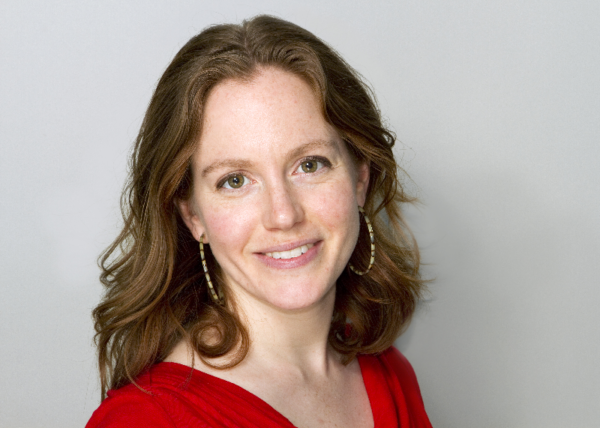If you ask Hallmark, June is wedding season. In my immediate family, June is a rollercoaster: We have three yartzheits (anniversary of one’s death), two birthdays (on the same day!), plus Father’s Day. At Mayyim Hayyim, it’s peak season for conversions—we have 25 conversion immersions scheduled just this month. It’s also LGBTQ Pride Month.
I’m particularly grateful for the mikveh in June, for an embodied ritual during a month when I can get stuck in my head. Each time I visit—whether to immerse or, more recently, to guide—I’m appreciative of Mayyim Hayyim as a space that allows all of us to be in our bodies, marking important moments with a physical transformation.
Mayyim Hayyim’s guests come to participate in a ritual, often for the first time, while naked—a vulnerable state for anyone. This is particularly true for guests who regularly use clothing, makeup, jewelry, binders, prosthetics or other technology to nudge a recalcitrant world around them into seeing them and treating them in a way that’s aligned with their identity, a group that includes transgender and nonbinary folks, some people with disabilities and many others.
It’s our responsibility as mikveh guides to take the physical infrastructure of accessibility that Mayyim Hayyim provides—exclusively non-gendered spaces, private changing areas, a wheelchair-accessible shower, large-print blessing sheets and more—and build upon them in our interactions to make sure that each guest knows that their presence at the mikveh is not just OK with us, but welcome and encouraged. That their families by birth and their families by choice will be celebrated when they come along for the ride. That we won’t assume their partner is their sibling, or get confused when they tell us one pronoun to use and someone who accompanies them keeps using a different one, or make assumptions about what their bodies look like based on the gender of the mikveh guide they requested when making the appointment.
This level of inclusion, which is about thoughtfulness, celebration and spaciousness for each person’s needs to be met, is an incredible manifestation of what queer pride can look like. We’re in a moment where even in “blue” Massachusetts, a ballot initiative [came up last fall] to repeal gender identity non-discrimination protections it took us 10 years to pass, and where major corporations brand themselves as inclusive by selling rainbow sneakers while not paying a living wage to their most vulnerable queer and trans employees. Mayyim Hayyim provides a real alternative, a reminder of what can happen when an institution decides right at the beginning that it wants to be fully available and welcoming to every member of its community.
Pride is about the quest for liberation and the need for celebration along the journey, a moment to revel in the marvel of making it this far, in all of our messy, glittery wholeness. As a mikveh guide, it’s my job to make sure that every bit of that wholeness is embraced. The questions we ask during mikveh guide training are useful far beyond the walls of Mayyim Hayyim, and long after June is over:
What would it mean to make people feel truly welcome? How can we encourage people to embrace this new experience without foisting upon them our own assumptions of what might come up for them? And how can each one of us take on the work of collective liberation, of building the world we want to live in?

Originally posted on Mayyim Hayyim’s website here.
This post has been contributed by a third party. The opinions, facts and any media content are presented solely by the author, and JewishBoston assumes no responsibility for them. Want to add your voice to the conversation? Publish your own post here. MORE


